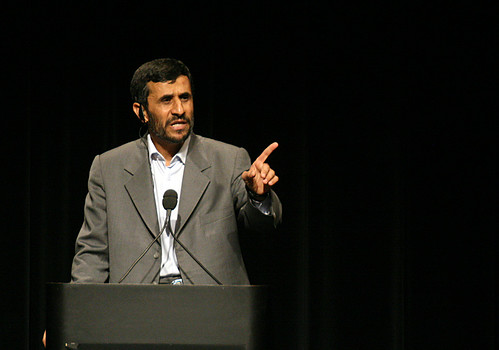In Sudan, an Election and a Beginning
by Barack Obama, President of the USA
NOT every generation is given the chance to turn the page on the past and write a new chapter in history. Yet today — after 50 years of civil wars that have killed two million people and turned millions more into refugees — this is the opportunity before the people of southern Sudan.
Read more at NY Times
Jimmy Carter: Where Sudan is headed
by Jimmy Carter, 39th President of the USA
Key challenges include demarcating final borders, resolving citizenship issues, building a framework for economic cooperation and managing the division of revenue from oil, most of which is currently extracted from fields in the South, but refined and pumped through pipelines crossing the North for export via Port Sudan on the Red Sea. An especially critical problem concerns the disputed oil-rich border area of Abyei, which remains unresolved and a source of much tension.
Read more at CNN International
 Africa unhinged?
Africa unhinged?
by Benny Avni
Yet the first significant breakup of an African country since the end of the colonial era raises the specter of splits in other ethnically divided nations in the continent -- and those divorces are less likely to be amicable. Is a wave of secessions ahead?
Read more at the NY Post
Sudan's vote: Independence could work for both North and South
by Pittsburgh Post-Gazette Editorial
Virtually all nations, including China and the United States as well as Sudan's neighbors, are watching the referendum in Southern Sudan on whether it should become an independent nation or continue to be yoked to the North as part of a single nation.
Read more
A vote to celebrate for south Sudan
by Solomon Attari
I am very proud that in my time as chief there has not been a single fight or any violence. In a village this size, with all of us who know each other so well, there are often disagreements. But one thing that we can all agree on is the value of peace. We will settle our differences through discussion and compromise, and never resort to force.
Read more at the Guardian
Answering Your Sudan Questions, Take 1
by Nicholas Kristof
The intense and prolonged suffering of the Sudanese people has naturally aroused humanitarian concern of the international community. In addition, a resumption of civil war would inevitably affect the nine bordering nations. The entire continent of Africa could be affected, as well as the worldwide religious community. It is important to recognize the enormous size of Sudan – equal to the United States east of the Mississippi River.
Read more at the NY Times
Americans: Support Today's Referendum - and Democracy - in South Sudan
by Heather Robinson
Omar al Bashir, president of Sudan, has spoken nicely in recent days about respecting the outcome of the vote. But his history of reportedly unleashing janjaweed militias on ethnic African villages and his indictment by the International Criminal Court for war crimes against fellow Muslims in Darfur, combined with his recent statement threatening imposition of Sharia Law in the North if the South breaks away, are troubling.
Read more at the Huffington Post
 Dividing rights and obligations
Dividing rights and obligations
by Boston Globe Editorial
There are now about 1.5 million southerners in northern Sudan, mostly of Christian or traditional animist faith. “If south Sudan secedes,’’ Bashir said last month, “we will change the constitution and at that time there will be no time to speak of diversity of culture and ethnicity. Sharia and Islam will be the main source for the constitution, Islam the official religion, and Arabic the official language".
Read more
Sudan’s Referendum—The Birth of a New Nation?
by Marina Ottaway
Southern Sudanese are widely expected to vote for independence—splitting the largest country in Africa and the Arab world in two—in a referendum on January 9. The referendum was designed to be the culmination of a peace process ending decades of conflict between the north and the south, but there are lingering fears that tensions could erupt into violence.
Read more at the Carnegie Endowment for International Peace
Sudan, Oil, and Security
by Chris Scanzoni
Though the conflict in Darfur has publicly captivated Americans, U.S. officials are vigorously striving to prevent a war in Sudan that promises even greater human costs. A January referendum for southern secession and the potential derailment of a delicate 2005 peace deal ending a 22-year civil war between the northern Arabs and southern Christians could revive the bloody conflict in the nation.
Read more at the Roosevelt Institute
Sudan, after the breakup: Can violence be prevented?
By Ibrahim Sharqieh
Though a creation of an independent South Sudan may solve one source of the conflict, renewed violence is still a possibility since the referendum does not address many of the root causes of this conflict. Most important, the referendum fails to address the issue in the oil rich border city of Abyei, whose inhabitants face the choice of staying with the North or joining the South.
Read more at the Christian Science Monitor
 Russian President Dmitry Medvedev on Monday urged a swift ratification for the U.S.-Russia START treaty, the RIA Novosti news agency reported.
Russian President Dmitry Medvedev on Monday urged a swift ratification for the U.S.-Russia START treaty, the RIA Novosti news agency reported.














